Navigating the legal Compliance property management in Palm Beach County is critical for landlords and property managers to avoid costly penalties and maintain tenant trust. With numerous federal, state, and local regulations to follow, staying compliant requires diligence, organization, and expert knowledge. This guide highlights key compliance areas and actionable strategies for property managers.
Why Legal Compliance in Property Management Matters
Adhering to Legal Compliance property management laws is not just a regulatory requirement; it also enhances tenant relationships and protects your investment. Key benefits include:
- Avoiding Legal Penalties: Prevent fines or lawsuits from non-compliance.
- Maintaining Reputation: Build trust with tenants by adhering to fair practices.
- Operational Stability: Ensure smooth operations with well-structured legal frameworks.
Key Comparisons:
| Aspect | Non-Compliant Management | Compliant Management |
|---|---|---|
| Tenant Satisfaction | Low | High |
| Legal Risks | High | Minimal |
| Operational Efficiency | Disrupted | Smooth |
Key Areas of Legal Compliance in Property Management
1. Fair Housing Laws
Federal and state fair housing laws prohibit discrimination based on race, color, national origin, religion, sex, familial status, or disability. Property managers must:
- Screen tenants using consistent and objective criteria.
- Avoid discriminatory language in advertising.
- Provide reasonable accommodations for tenants with disabilities.
2. Lease Agreements
Well-drafted lease agreements protect both landlords and tenants. Ensure:
- Clarity: Include terms on rent, security deposits, maintenance responsibilities, and notice periods.
- Compliance: Adhere to Florida’s landlord-tenant laws.
- Enforceability: Regularly review agreements with a legal expert to stay updated.
3. Security Deposit Regulations
Florida law mandates how security deposits should be handled:
- Hold deposits in a separate account.
- Provide written notice to tenants about the account details.
- Return deposits within 15-30 days after lease termination, minus any justified deductions.
4. Eviction Procedures
Evictions must follow legal protocols to avoid disputes. Key steps include:
- Issuing proper notice (e.g., 3-day notice for nonpayment of rent).
- Filing an eviction lawsuit if the issue is unresolved.
- Avoiding self-help methods like changing locks or removing tenant belongings.
5. Maintenance and Safety Standards
Landlords must provide a safe and habitable environment. Ensure:
- Compliance with local building codes.
- Timely repairs for reported issues.
- Routine inspections to prevent hazards.
Strategies for Staying Compliant
1. Leverage Legal Expertise
Partner with an attorney or legal consultant specializing in property management to:
- Draft and review lease agreements.
- Provide updates on new laws and regulations.
- Represent you in legal disputes.
2. Use Property Management Software
Technology can help streamline compliance efforts. Look for tools that:
- Automate tenant screening and record-keeping.
- Track maintenance requests and resolutions.
- Generate legally compliant notices and documents.
3. Conduct Regular Training
Educate your property management team on:
- Fair housing practices.
- Florida landlord-tenant laws.
- Best practices for handling security deposits and evictions.
4. Keep Accurate Records
Maintain detailed documentation to protect yourself in legal disputes:
- Tenant communications.
- Maintenance logs and invoices.
- Rent payment histories.
Case Study: Ensuring Compliance in West Palm Beach
A property owner in West Palm Beach faced legal challenges due to unclear lease terms and non-compliance with fair housing laws. Partnering with Atlis Property Management led to:
- Revised Lease Agreements: Clear, legally compliant terms reduced disputes.
- Fair Housing Training: Staff received comprehensive education on anti-discrimination practices.
- Streamlined Record-Keeping: Digital tools ensured accurate documentation for all transactions.
Outcomes:
- Reduced Legal Risks: No disputes or lawsuits in two years.
- Increased Tenant Satisfaction: Improved relationships with tenants boosted retention rates.
- Operational Efficiency: Compliance measures streamlined day-to-day management.
Helpful Resources for Property Owners
- Explore tenant screening services to ensure fair practices.
- Learn about lease agreement drafting for legal compliance.
- Discover maintenance solutions to meet safety standards.
The Benefits of Legal Compliance
| Benefit | Without Compliance | With Compliance |
| Legal Costs | High | Minimal |
| Tenant Relationships | Strained | Positive |
| Reputation | Damaged | Enhanced |
| Operational Stability | Disrupted | Smooth |
Conclusion
Legal compliance is a cornerstone of successful property management in Palm Beach County. By staying informed about laws and leveraging expert resources, landlords and property managers can protect their investments, enhance tenant satisfaction, and avoid costly legal disputes. Atlis Property Management offers comprehensive solutions to ensure your property remains fully compliant.
Contact Atlis Property Management today to learn more about our compliance-focused services. Visit atlispm.com for additional information.



